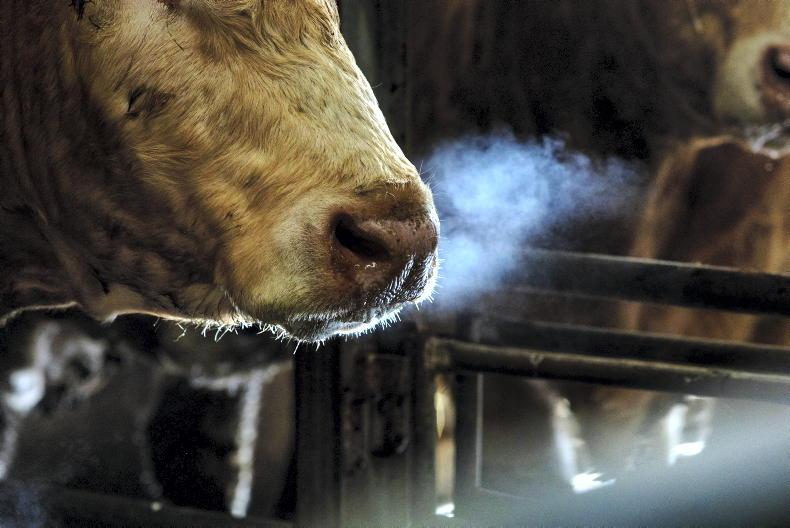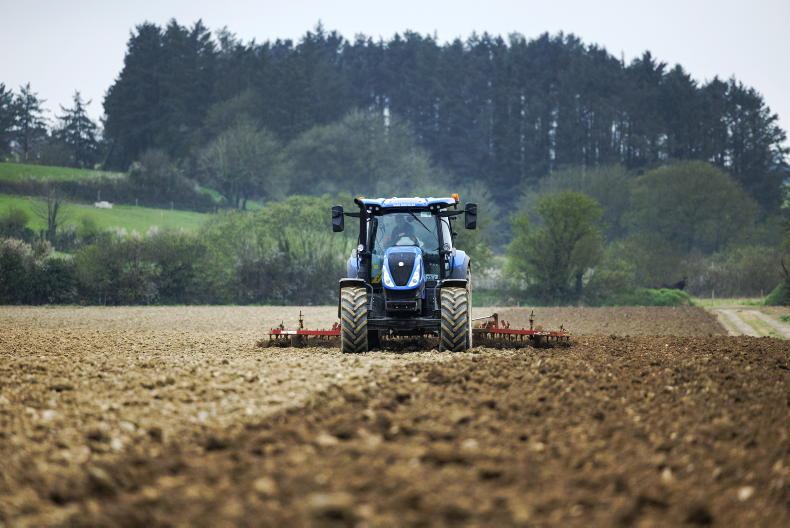Dedicated border control posts for live animals, vets, forestry and food checks will be needed at Ireland's ports should the UK crash out of the EU without a deal.
In the Government’s contingency action plan in the event of a no-deal published on Wednesday night, it said that arrangements are under way for new customs and sanitary and phytosanitary (SPS) requirements at ports.
Checks at Ireland’s ports
The Government has said that it is looking at buying land at Ireland’s ports in the event of a no-deal Brexit. It said that it has already identified a temporary site at Dublin Airport for urgent adaptation and fit-out for a no-deal Brexit.
At Dublin Port, the following requirements are being progressed by the Office of Public Works (OPW) and provision is being made for infrastructure including:
A dedicated border control post for live animals.Thirty-three inspection bays for trucks coming off ships.Parking for 270 trucks to ensure that trucks awaiting inspection do not halt other port traffic.At Rosslare Europort, provision is being made for infrastructure including:
A dedicated border control post for live animals.Thirteen inspection bays for trucks coming off ships.Parking for 35 trucks.For Dublin Airport, the no-deal report says that detailed design work has already been carried out on additional facilities at Dublin Airport and discussions are under way with the Dublin Airport Authority (DAA) to develop a suitable location for these facilities.
A border control post is required for veterinary, forestry, and sanitary and phytosanitary (SPS) checks. This will include seven inspection rooms as well as ambient, chilled and freezer storage areas.
Extra staff
The Department of Agriculture is currently recruiting extra staff for 2019, which will be required to carry out increase sanitary and phytosanitary controls.
In addition to this sanctioned recruitment, the Department will consider redeployment of existing staff in a no-deal scenario, using models such as those put in place for the response to foot-and-mouth disease.
The Government has said that a key priority in the agri-food area is to minimise disruption to Irish exports and imports to and from the UK
A new environmental health officer panel is scheduled to be in place by February 2019 and can be deployed rapidly in a no-deal Brexit scenario.
The Government has said that a key priority in the agri-food area is to minimise disruption to Irish exports and imports to and from the UK and to ensure the current ease of access to the Single Market is maintained.
As part of the Department of Agriculture’s contingency planning, it continues to explore the pressure points that industry might encounter while looking at mitigation options in the event of a hard Brexit.
Given Ireland’s geographic location, work in this area has focused particularly on the continued effective use of the UK landbridge.
This includes minimising the impact of additional checks and controls that will be required on an east-west basis at ports and airports in a no-deal scenario.
As with connectivity more generally, a crucial element in the Government’s approach to the agri-food sector is therefore to effectively manage the new requirements for checks and controls on imports from the UK as a third country for agri-food products coming through our ports.
Northern Ireland
For Northern Ireland businesses and farmers, the Government said that the prospect of operating outside the EU with no deal would be extremely serious.
It said it would try to mitigate the effects to the extent possible, but said that this will be primarily a matter for the British Government and the Northern Ireland authorities.
Read more
Brexit: no-deal will lead to increase in UK animal import inspections
EU moves no-deal Brexit legislation
Open Brexit fund and build customs posts – Oireachtas
Dedicated border control posts for live animals, vets, forestry and food checks will be needed at Ireland's ports should the UK crash out of the EU without a deal.
In the Government’s contingency action plan in the event of a no-deal published on Wednesday night, it said that arrangements are under way for new customs and sanitary and phytosanitary (SPS) requirements at ports.
Checks at Ireland’s ports
The Government has said that it is looking at buying land at Ireland’s ports in the event of a no-deal Brexit. It said that it has already identified a temporary site at Dublin Airport for urgent adaptation and fit-out for a no-deal Brexit.
At Dublin Port, the following requirements are being progressed by the Office of Public Works (OPW) and provision is being made for infrastructure including:
A dedicated border control post for live animals.Thirty-three inspection bays for trucks coming off ships.Parking for 270 trucks to ensure that trucks awaiting inspection do not halt other port traffic.At Rosslare Europort, provision is being made for infrastructure including:
A dedicated border control post for live animals.Thirteen inspection bays for trucks coming off ships.Parking for 35 trucks.For Dublin Airport, the no-deal report says that detailed design work has already been carried out on additional facilities at Dublin Airport and discussions are under way with the Dublin Airport Authority (DAA) to develop a suitable location for these facilities.
A border control post is required for veterinary, forestry, and sanitary and phytosanitary (SPS) checks. This will include seven inspection rooms as well as ambient, chilled and freezer storage areas.
Extra staff
The Department of Agriculture is currently recruiting extra staff for 2019, which will be required to carry out increase sanitary and phytosanitary controls.
In addition to this sanctioned recruitment, the Department will consider redeployment of existing staff in a no-deal scenario, using models such as those put in place for the response to foot-and-mouth disease.
The Government has said that a key priority in the agri-food area is to minimise disruption to Irish exports and imports to and from the UK
A new environmental health officer panel is scheduled to be in place by February 2019 and can be deployed rapidly in a no-deal Brexit scenario.
The Government has said that a key priority in the agri-food area is to minimise disruption to Irish exports and imports to and from the UK and to ensure the current ease of access to the Single Market is maintained.
As part of the Department of Agriculture’s contingency planning, it continues to explore the pressure points that industry might encounter while looking at mitigation options in the event of a hard Brexit.
Given Ireland’s geographic location, work in this area has focused particularly on the continued effective use of the UK landbridge.
This includes minimising the impact of additional checks and controls that will be required on an east-west basis at ports and airports in a no-deal scenario.
As with connectivity more generally, a crucial element in the Government’s approach to the agri-food sector is therefore to effectively manage the new requirements for checks and controls on imports from the UK as a third country for agri-food products coming through our ports.
Northern Ireland
For Northern Ireland businesses and farmers, the Government said that the prospect of operating outside the EU with no deal would be extremely serious.
It said it would try to mitigate the effects to the extent possible, but said that this will be primarily a matter for the British Government and the Northern Ireland authorities.
Read more
Brexit: no-deal will lead to increase in UK animal import inspections
EU moves no-deal Brexit legislation
Open Brexit fund and build customs posts – Oireachtas









SHARING OPTIONS